Rose Caiola and I spent last weekend at the Omega Institute’s Women & Power 2014 conference. This year’s theme was Women/Men: The Next Conversation. Here’s the short version:
Wow!
We went for professional reasons—to cover the event for Rewire Me, to develop relationships, and to find story ideas. We got all of that, but something much more—we were both transformed by the experience. The incredible lineup of speakers, the amazing place that is Omega (if you can get there, it’s well worth the trip), and the energy of the community fused to make a big impact on us. Rose left with a greater appreciation for the male brain and a new understanding that there are just as many stereotypes associated with growing up “boy” as with growing up “girl,” which gave her a lot of ideas for how Rewire Me as a community can work to combat all gender stereotypes. I gained insight into being a better mom to my adolescent son, discovered some things about myself, and even learned a few new words in the process.
In her opening remarks, Omega co-founder Elizabeth Lesser posed some of the questions that guided the conversations for the weekend: What does it mean to be a man? What does it mean to be a woman? How has gender shaped us? How are we staying trapped in stereotypes? What does the future look like?
I was amazed at the depth and empathy with which these questions were considered and explored. The wisdom and erudition of the speakers was one of the many things about the event that inspired and rewired me. If you can attend in 2015, don’t miss it!
Here are some of the best moments:
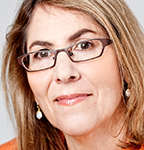
“It’s not enough for women to lean in, we have to change what we’re leaning into.”
Elizabeth Lesser describes herself as an “evolutionary optimist.” In 2002 she established Omega’s Women’s Leadership Center and initiated the Women & Power conference series. She is also co-founder of the Omega Institute and a frequent host on the Oprah Radio channel on Sirius/XM as well as being an enlightened grandmother. And if all that weren’t keeping her busy enough, she’s the author of the New York Times best seller, Broken Open: How Difficult Times Can Help Us Grow (Villard). Lesser added a new word to my vocabulary—otherizing. It’s the action of demonizing a person or group as an alien other. You can learn about otherizing and how to counteract it in her much-viewed TED Talk.
“Good men have to be more than just good—they have to be part of the solution.”
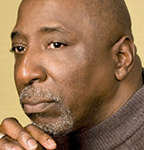
After Tony Porter spoke, Rose turned to me and said, “Loved him.” Me too. What a man (in the best possible sense of the word)! He is co-founder of A Call to Men: The Next Generation of Manhood, an educator, and an activist working with organizations from the NFL to the UN. He spoke about breaking out of the “man box,” in other words, changing our definition of manhood so that it’s no longer “wrapped in muscles.” He also wants to rewrite the rules men are (often mis-) socialized with: men are stronger than women; men are tough and don’t experience pain; men don’t cry; men shouldn’t “act like girls.” His goal is to reach into the hearts of men and help them envision and realize the world they want for their daughters. And I’m certain he’s succeeding.
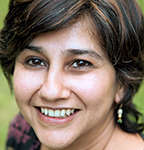
“Where are the men? How can women create gender transformation without men?”
Mallika Dutt is founder, president, and CEO of the global human rights organization Breakthrough, whose mission is to build a world in which violence against women and girls is unacceptable. She serves on numerous boards and committees, including Planned Parenthood Federation and the World Economic Forum. I learned a new term from her as well—intersectionality, an analytical tool for studying, understanding and responding to the ways in which gender intersects with other identities and how these intersections contribute to unique experiences of oppression and privilege. Dutt is working to free women from the “prison of intersectionality,” taking us from a “culture of violence to one of care.”
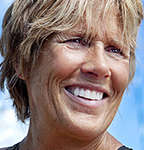
“When I look out at the ocean, I see my teacher.”
At the age of 64, on her fifth harrowing attempt, Diana Nyad successfully fulfilled her lifelong dream of completing the 110-mile swim from Cuba to Florida in September 2013. One of the greatest long-distance swimmers in the world, she has circled Manhattan and swum the 102.5 miles from the Bahamas to Florida. It may be hard to believe, but there’s far more to her than that. She took us on an emotional roller-coaster ride as she shared her “wild and precious life”—from her father’s faith in her when she defied gender stereotypes to her devastating childhood rape by her trusted swim coach. Throughout her journey and spurred by her mantra, “Find a way,” what she feels most proud of is “not giving up.” And she certainly hasn’t.
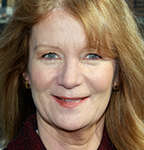
“Great minds think unalike.”
Gender intelligence expert Barbara Annis gave us a crash course in the neuroscience of brain difference between men and women. According to Annis, “It’s not about learning how to fit in. It’s about bringing our authentic male and female selves [to the gender conversation] and valuing that difference,” because the trouble with meritocracy is that it’s based on sameness. She is the founder and chief executive officer of Barbara Annis & Associates Inc., and author of Improving Your Bottom Line (HarperBusiness). She advocates the value and practice of inclusive leadership through cultural and gender intelligence in corporations, governments, and organizations worldwide.
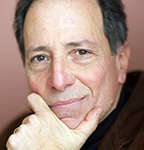
“White men in America are the beneficiaries of the greatest equal opportunity program in the history of the world—it’s called the history of the world.”
Among the leading researchers on men and masculinity, Dr. Michael Kimmel is the recipient of a 2013 MacArthur Foundation grant to establish the Center for the Study of Men and Masculinities at Stony Brook University, where he is Distinguished Professor of Sociology and Gender Studies. He’s a sought-after speaker, lecturing extensively about gender equality at corporations, on campuses, and for government organizations both nationally and internationally, and after hearing him it’s no surprise—he’s brilliant and funny. After his talk, Rose and I hustled to the Omega bookstore to pick up copies of Guyland (Harper) and Angry White Men (Nation Books).
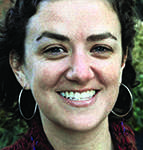
“So many men are looking for permission to open up.”
Courtney E. Martin is editor emeritus at Feministing.com, founding director of the Solutions Journalism Network, and partner at Valenti Martin Media, a social media strategy firm. Her work has appeared in top national print and television outlets. She is the recipient of the Elie Wiesel Prize in Ethics and the author of Do It Anyway (Beacon) and Perfect Girls, Starving Daughters (Berkley). Besides being a compelling speaker and facilitator, she deserves the gratitude of mothers everywhere: her New York Times article sparked a hackathon at MIT to redesign the breast pump so it doesn’t suck.
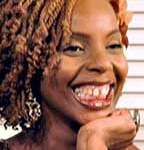
“The breaking of silence has always been revolutionary…I use the power of media to break that silence.”
Esther Armah is “a woman who has an intimate relationship with injustice and violence.” She held the audience rapt with the story of what she and the other women in her family endured at the hands of soldiers during the 1966 Ghana military coup, and used her experience to shine a light on the legacy of untreated trauma from which so many people and cultures suffer. She believes that “the lens transforms the narrative” and to that end, she’s been focusing the lens as an award-winning radio host, MSNB regular, international journalist, political commentator, public speaker, and playwright specializing in the politics and practice of emotionality and how it shapes policy and politics, culture, and race.
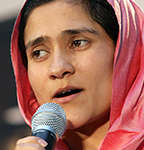
“’I empower’ devalues the process of empowerment.”
Born and raised in Kabul and educated at Middlebury College, Shabana Basij-Rasikh is co-founder and president of the School of Leadership Afghanistan (SOLA), a nonprofit organization that helps young Afghan women access education worldwide and leadership positions back home. She works to unlock the economic potential of Afghanistan by improving its educational system to produce exceptional leaders—especially women, by creating a safe space for girls to grow into their confident selves. “Investing in girls’ education is not just about girls—in the long term, it helps everybody.”
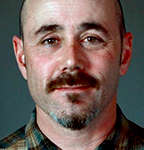
“To know that you’re a prisoner of your own mind is your only chance for freedom.” “Our time and our attention—that’s our gift.”
Vinny Ferraro was one of the reasons I wanted to come to the Omega conference in the first place. I had read about his work with Dharma Punx, and my teenage son DVRs his MTV show If You Really Knew Me. He didn’t disappoint. As a trainer for Mindful Schools and a longtime mindfulness practitioner working with at-risk adolescents, he’s gathered the coal from his path in life—growing up in an environment where crime and incarceration were a natural stepping stone to addiction—and transformed it into diamonds—recovery and a gentle and true gift for spiritual teaching. “If anyone can make it, I’m the least likely.” And together, “We are dreaming ourselves into existence.”
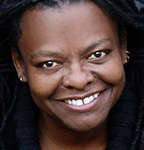
“We are experts in our own experience.”
Vinny Ferraro’s teaching partner Pam Dunn is a trainer and leader for Challenge Day, whose mission is to provide youth and their communities with experiential programs that demonstrate the possibility of love and connection through the celebration of diversity, truth, and full expression, and Be Present Inc., building sustainable leadership for social justice. If the energy, wisdom, and wry humor she brought to the “Moving Beyond Our Stories” interactive session is any indication, these organizations are lucky to have her.
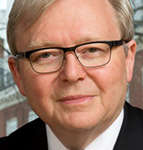
“Compassion should not be regarded as a human weakness but as the most profound of human strengths.”
As Australia’s Prime Minister, Kevin Rudd “built a bridge to trust” and made history when he apologized to his country’s aboriginal people. “The miracle of that apology was not that I gave it, but that they accepted it.” Prime Minister from 2007 to 2010, then Foreign Minister from 2010 to 2012, he returned to the Prime Ministership in 2013. He is currently engaged in numerous political, environmental, and social challenges. He’s coauthor of the UN Secretary General’s High Level Panel on Global Sustainability report, “Resilient People, Resilient Planet,” and chairs the World Economic Forum’s Global Agenda Council on Fragile States.
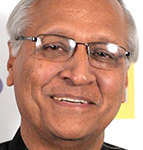
“I think everyone has the capacity and competence to solve their own problems.”
Sanjit “Bunker” Roy is the founder of Barefoot College, which began in Jharkhand, one of India’s poorest states. Its mission is to provide basic services and solutions in rural communities, making them self-sufficient. Through “learning-by-doing,” the college teaches literacy and skills from solar energy to health care, rural handicrafts to wasteland development. Its motto is “Train a grandmother, change the world!” And it’s working. One of the most impactful projects of the Barefoot College has been taking grandmothers out of their villages, training them, and sending them back as credentialed solar engineers. The program has been so successful, the Dalai Lama was moved to comment, “Now that you’ve shown the Barefoot College working in practice, let’s see how the scholars and experts can make it work in theory.”
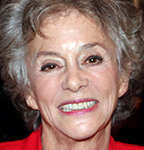
“To paraphrase Eugene Debs, gender equality means rising with the ranks, not from the ranks, and pulling everyone with you.”
I could have listened to Stephanie Coontz speak for hours. She is an historian and an author, has a delightfully wicked sense of humor, and is a font of remarkable facts like this one: until the 1970s, wives weren’t included in the legal definition of divorce and domestic violence was seen as a way to recover marital equilibrium. So it’s no wonder that she’s been a featured expert on television programs from Oprah to O’Reilly. Coontz has also written several books about women and families, including Marriage, a History: How Love Conquered Marriage (Penguin) When asked, “Are we ‘there yet’ when it comes to gender equality?” she answered, “No, but we’re a lot closer than we were 40 years ago.”
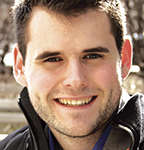
“What makes a family is love.”
I’ll never forget the YouTube video of (then) college student Zach Wahls addressing the Iowa House Judiciary Committee in a public hearing on a proposed constitutional amendment to ban gay marriage. He told the assembly, “The sexual orientation of my parents had zero impact…” Wahls is definitely no one-hit wonder. After graduating from college, he’s gone on to cofound Scouts for Equality, the national campaign to end discrimination in the Boy Scouts of America. He is a frequent speaker and author of the national bestseller, My Two Moms: Lessons of Love, Strength and What Makes a Family (Gotham). His work shows that “The kids will tell you if we’re alright.”
And if that weren’t enough, singer-songwriter India.Arie raised us to our feet and lifted our souls, reminding us that we are “Ready for Love.” Poet Carlos Andrés Gómez embodied why ‘man’ and ‘sensitive’ don’t have to be antonyms. Cynthia Brix and Will Keepin led a “silent witnessing” exercise as a way of visually demonstrating how “acknowledging suffering leads to mutual respect.” And Leslie Salmon Jones and Jeff W. Jones helped us process and embody all we’d learned by leading us through an Afro Flow Yoga session.
When it came time to bring the conference to a close, Vinny Ferraro guided a meditation and sent us back into the world with David Whyte’s “What to Remember When Waking”:
To be human is to become visible
while carrying what is hidden as a gift to others.
On the bus ride back to New York City, someone asked the woman across the aisle from me how the experience had been for her—sort of the conference equivalent of “What’s your major?” Her reply? “I’m on fire!” She’s not alone.
Click here to see Rose’s tips for healthy and happy relationships

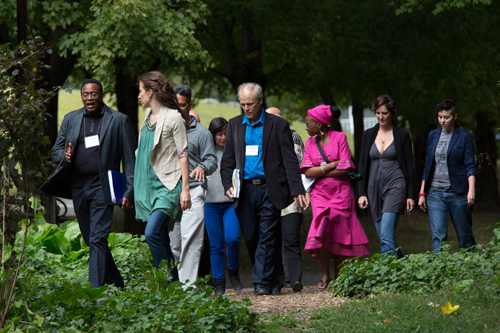

1 Comment
Beth Urech
I was at the conference and concur that the speakers were energizing and elevating. I am more convinced than ever that women and men alike need to take a stand, raise our voices and persevere.